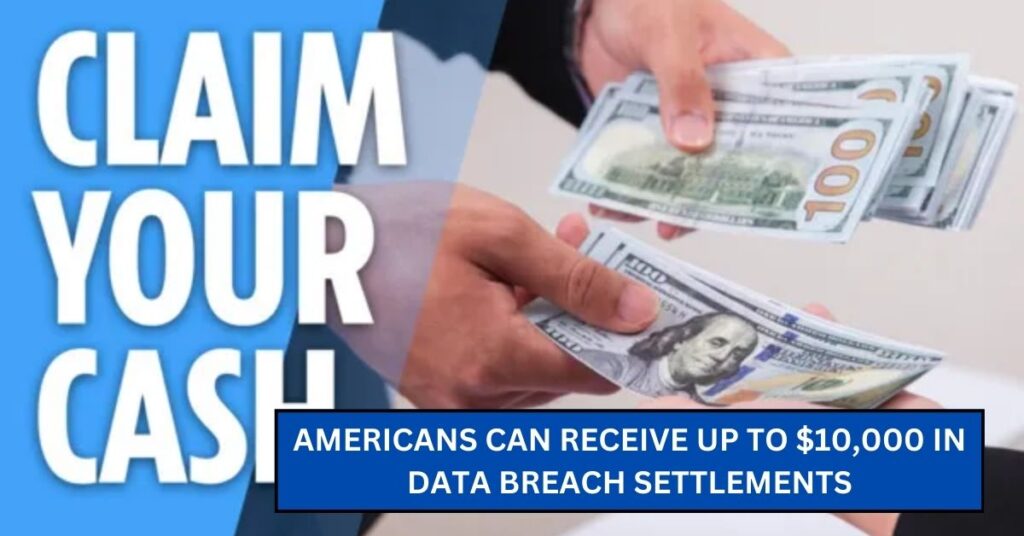Americans affected by major data breaches may now be eligible to receive compensation of up to $10,000, thanks to several recent settlement agreements. However, the amount individuals can claim and their eligibility depends on their location and the specifics of the breach they were affected by.
Data breaches have exposed sensitive personal information such as Social Security numbers, financial records, and healthcare data. As a result, multiple lawsuits have led to settlements where victims can now claim financial relief. Below is an overview of key settlements, eligibility criteria, and how to file a claim.
Key Data Breach Settlements and Eligibility
1. City of Oakland Data Breach Settlement
- Overview: In February 2023, the City of Oakland, California, suffered a cybersecurity breach that compromised government employees’ and residents’ personal data.
- Eligibility: Individuals who were notified of their involvement in the breach are eligible.
- Compensation:
- Up to $350 for ordinary expenses (such as credit monitoring).
- Up to $10,000 for documented extraordinary losses due to identity theft.
- Additional $175 for impacted Oakland police officers.
- Claim Deadline: May 6, 2025
- More Info & Claims: oaklanddatabreachsettlement.com

2. DC Health Link Data Breach Settlement
- Overview: The 2023 breach of DC Health Link exposed the personal data of approximately 170,000 individuals.
- Eligibility: Individuals whose information was compromised.
- Compensation:
- Up to $10,000 for documented fraud losses.
- Up to $2,500 for potential data compromises.
- One year of free credit monitoring.
- Claim Deadline: March 28, 2025
- More Info & Claims: dchealthlinksettlement.com
3. Columbus Regional Healthcare System (CRHS) Data Breach Settlement
- Overview: CRHS suffered a data breach on May 21, 2023, exposing patients’ Social Security numbers and medical records.
- Eligibility: Individuals whose data was compromised.
- Compensation:
- Up to $5,000 for documented fraud-related losses.
- A smaller cash payment (around $50) for other victims.
- Claim Deadline: April 2, 2025
- More Info & Claims: columbusregionaldatasettlement.com
4. MGM Resorts Data Breach Settlement
- Overview: The 2019 and 2023 data breaches at MGM Resorts affected millions of customers.
- Eligibility: Individuals who stayed at MGM Resorts and had their data compromised.
- Compensation:
- Up to $15,000 for documented financial losses.
- Most claimants will receive between $20-$75.
- Free identity theft protection services.
- Claim Deadline: June 3, 2025
- More Info & Claims: mgmresortssettlement.com
How to File a Claim
If you believe you were affected by one of these breaches, follow these steps:
- Check Your Eligibility: Visit the settlement websites or contact the administrators to verify if your data was compromised.
- Gather Documents: If applicable, collect receipts, fraud reports, or bank statements to prove your losses.
- Submit Your Claim: Complete the claim form online or by mail before the deadline.
- Monitor Your Status: Settlement administrators may request additional documents before approval.
Government and Consumer Protection Resources
- Federal Trade Commission (FTC): Provides consumer advice on identity theft prevention (www.ftc.gov)
- National Cybersecurity & Infrastructure Security Agency (CISA): Offers cybersecurity guidelines (www.cisa.gov)
- Identity Theft Resource Center: Assists victims of data breaches (www.idtheftcenter.org)

Final Thoughts
While data breach settlements offer financial relief to victims, they also highlight the growing threat of cyberattacks. If you are eligible for compensation, ensure that you file your claim before the respective deadlines. Additionally, take proactive steps to protect your data, such as using strong passwords and monitoring your credit reports regularly.
To stay updated on future data breach settlements, follow government websites such as the U.S. Department of Justice and Consumer Financial Protection Bureau. Filing a claim can help offset the damage caused by data breaches while ensuring corporations and government agencies are held accountable for securing sensitive information.
This article has been carefully fact-checked by our editorial team to ensure accuracy and eliminate any misleading information. We are committed to maintaining the highest standards of integrity in our content.


